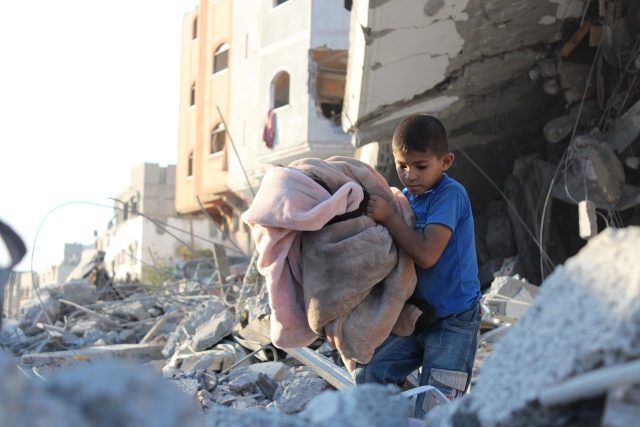
In response to the serious humanitarian crisis that continues to affect the Gaza Strip, the European Union has announced the adoption of a new €120 million aid package.
This allocation, aimed at addressing the emergency and supporting the Palestinian population, represents a further step in the EU’s humanitarian commitment, which has reached a total of €450 million allocated to Gaza since 2023.
“The ceasefire agreement and the release of the hostages offer crucial hope to a region that desperately needs it. However, the humanitarian situation in Gaza remains grim,” said European Commission President Ursula von der Leyen. The new initiative aims to provide concrete support to a population that faces food insecurity, medical shortages and precarious housing conditions on a daily basis. According to Commission spokesperson Eva Hrncirova, the funds will be used to address the most urgent needs, including food, medical supplies, tents and other forms of protection for displaced people. “The situation there is catastrophic,” Hrncirova said, stressing the urgency of targeted interventions.
The new €120 million package is designed to address the main critical issues affecting Gaza. The planned interventions include:
Provision of food assistance to address acute food insecurity and malnutrition.
Support for the distribution of basic food items for the most vulnerable families.
Support for the functioning of local health facilities.
Provision of essential medical supplies to address health emergencies and improve access to care.
Interventions to ensure access to water and sanitation services.
Improved infrastructure to reduce the risk of diseases related to poor water quality.
Creation of safe shelters for displaced people.
Provision of temporary shelters, with a focus on the safety and dignity of beneficiaries.
Psychological and social support for vulnerable populations, especially women, children and the elderly.
Safety guarantees for those living in extremely precarious conditions.
The European Union will work closely with UN agencies and other humanitarian partners to ensure that aid reaches those in need quickly. This approach is crucial to maximise the effectiveness of resources and ensure fair and transparent distribution. Since 2023, the EU has also organised humanitarian air bridge flights to Gaza, delivering over 3,800 tonnes of aid, including food, medicines and other essential supplies. The aim is to ensure that humanitarian interventions are timely and responsive to evolving needs. Support to Gaza is part of a broader EU humanitarian engagement with third countries. In 2025, the total budget for humanitarian aid will reach €1.9 billion, consolidating the Union’s role as a major global actor in responding to humanitarian crises.
This allocation reflects the EU’s willingness to promote stability and international solidarity, responding firmly to the ongoing emergencies. “Europe cannot remain indifferent to the suffering of millions of people,” reiterated von der Leyen, underlining the value of international cooperation. Despite the difficulties, the announcement of the new aid package is a sign of hope for the people of Gaza. Although the crisis remains serious, European support is helping to improve the living conditions of thousands of people, demonstrating the EU’s commitment to fostering the resilience and well-being of the most vulnerable communities. In the long term, it remains crucial to work towards a political and diplomatic solution that can ensure lasting stability and security in the region, laying the foundations for sustainable and inclusive development. The European Union, through its humanitarian support and diplomatic influence, continues to be a key player in this process.
The humanitarian situation, constantly evolving due to the delicate socio-political situation in the world, must remain dynamic and Europe promotes an effective and necessary assistance. Every European nation will make itself available to the cause to respond to the emergency.



 Subscribe
Subscribe